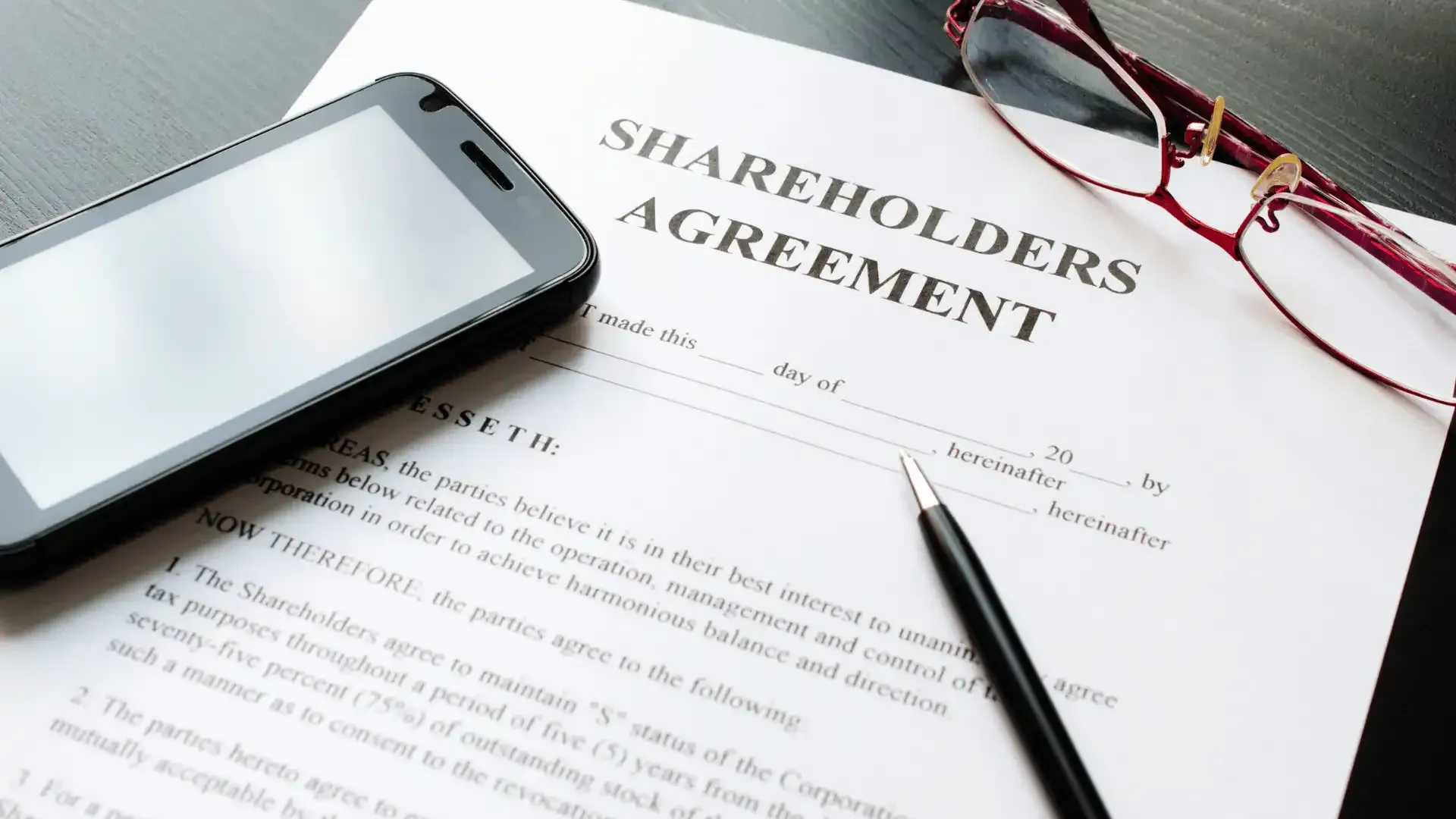The Essential Guide to Shareholder Agreements for Success
A Shareholder Agreement is an essential legal document for any business owned by more than one person (not being their relationship partner) It’s a legally binding agreement between shareholders or business partners to establish a framework of how the company should be operated and outlines the rights, obligations and roles of the shareholders when (not if) one of the eventualities occur.
What is in a Shareholder Agreement NZ?
Shareholder Agreements include, but are not limited to covering off:
- One of you are:
- Dying
- Suffering total permanent disability
- Suffering trauma
- Waiting to retire
- You started fighting and neither want to leave
- If leaving how a fair price for your interest is fixed
- What happens if the others refuse to buy you out
- What happens if you are leaving and have money tied up in the business
- Controls around hiring/firing, borrowing, extending credit and changing business directors etc
Why do you need a Shareholders Agreement in New Zealand?
Consider a Shareholders Agreement as the bedrock of a business structure; without it, the business’ foundation becomes precarious. It ensures shareholders are treated fairly and their rights are protected, whether from internal conflicts to ambiguity regarding share valuation and shareholder roles. Essentially, it serves as a proactive measure to avoid potential crises and gives structured processes to stop disagreements escalating and avoid complications.

Shareholder Agreements do not exclusively protect your position in the daily running of a business. Aside from being a valuable tool for conflict resolution within the business, a Shareholder Agreement also protects you in the event of circumstances beyond your control. To draw a comparison, Shareholder Agreements are the business equivalent of a Relationship Property Agreement or pre-nup. It’s crucial to make plans for all events, and consider what will happen to your interest in the business should:
- You die, suffer total permanent disability or trauma. How can you turn your interest in the business into money for your family?
- Your co-shareholder or business partner dies or suffers incapacity. Will you end up working with somebody who can no longer “pull his or her weight”; or with their spouse (as the inheritor under their Will) trying to get involved? Or can you force the deceased/incapacitated party to sell out and if so, for how much?
- You want to exit the company. Whether through disagreement or retirement, is there an orderly process for this to happen at a fair price or could “obstacles” be put in your way?
A Shareholders Agreement provides clarity should major changes occur which may adversely impact the company, but they are also be seen as a sign of good business governance. Banks and investors are particularly supportive of such strategic business structures as they demonstrate a keen commercial understanding and due diligence.

When should you set up a Shareholders’ Agreement?
In the ideal world, a Shareholder Agreement is drawn up before you start or acquire a business. Unfortunately, whether to save legal costs or assuming business relationships will always remain on good terms, many business owners don’t organise a Shareholder Agreement. Without one in place, a business risks coming under serious strain or litigation if there are disagreements between the shareholders. The consequence is typically a highly stressful and costly legal dispute, invariably costing you more money than any perceived savings.
It is never too late to get an agreement drafted and signed. Even well established family firms with good working relationships, trust and goodwill should have a Share Agreement in place.
Do I need a Shareholders Agreement and Company Constitution?
While there is an overlap between a company’s constitution and a Shareholder’s Agreement, differences exist. A Shareholder Agreement is confidential and unlike a company constitution is not registered with the Companies Office.
A Shareholders Agreement regulates relationships and specific operational matters beyond a company constitution and is detail rich. Consider the scenario of a shareholder in a relationship property dispute. A Shareholder Agreement can even require shareholders to enter into a Property Relationship Agreement with their spouse whereby it is agreed that in the eventuality of a separation the spouse is only entitled to claim other assets and the business shares remain in possession of the business active person.

Why you need legal advice for a Shareholder Agreement
It is crucial you engage experienced and reputable business and family lawyers in Christchurch to navigate, negotiate and create a legally robust Shareholder Agreement to meet your specific and unique requirements.
Weston Ward and Lascelles’ Ltd highly skilled lawyers guide clients through the process, and tailor an agreement to meet your current and future needs. The advice we give is both sensible and commercially viable, designed to efficiently protect the business and the shareholders within business protection laws.
Here’s how Weston Ward and Lascelles Ltd can help you:
- Draft Shareholder Agreements
- Review existing Shareholder Agreements
- Negotiate Shareholder Agreements on your behalf
- Act for the business in shareholder disputes
It’s important to note Share Agreements should not be considered as standalone vehicles of financial protection for the future. There are other legal areas to review to strengthen your long-term financial position, contact Weston Ward and Lascelles Ltd Christchurch law firm for advice on:
- Estate planning
- Legally minimise the amount of income tax you are liable to pay through restructuring. For example, spreading income between yourself, the business, trusts and family to maximise marginal income tax brackets; exchanging non-tax-deductible borrowing for borrowing that is tax deductible.
- Creating a Family Trust
- Ensuring Wills, Living Wills and Enduring Powers of Attorney are up to date
- Review terms and conditions of trade
- Draft or review Employment Agreements
- Draft or review a Property Relationship Agreement
What are the next steps to organising a Shareholder Agreement?
Please note this article does not constitute legal advice and may be outdated, and as there is no one-size-fits-all Shareholder Agreement in New Zealand, it’s important to make an appointment with our Christchurch legal team to discuss the nuances of your circumstances. Call 03 379 1740 or click here to arrange a mutually convenient time.






